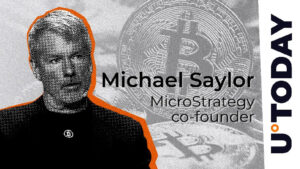Ethereum co-founder Vitalik Buterin has been criticized by the crypto community for his comments on decentralized finance (DeFi).
In an Aug. 25 post on X, Buterin expressed doubts about DeFi’s potential to drive significant growth in the crypto sector. He stated:
“The ongoing existence of the defi market is downstream of the existence of the ETH market, which means that while defi may be great it’s fundamentally capped and can’t be _the_ thing that brings crypto to another 10-100x adoption burst.”
Community backlash
Buterin’s remarks sparked strong reactions from the DeFi community, with influential figures like DeFiance Capital founder Arthur Cheong openly challenging his views.
Cheong pointed out DeFi’s contribution in helping to drive Ethereum’s value to its current height, stating:
“[Buterin] doesn’t really understand the usecase and sector that drive value to ETH and make it worth $330b.”
Similarly, Sam Kazemian, the founder of Frax Finance, suggested that Buterin was out of touch with the current dynamics of DeFi and stablecoins. He said the Ethereum co-founder arguments relied on outdated assumptions.
Rhett Shipp, founder of Gravita Protocol, also argued that DeFi was pivotal to ETH’s growth. According to him, the sector accounts for the majority of Ethereum’s usage and gas fees and helps to drive ETH’s value because it is heavily used as collateral in DeFi.
Shipp also countered Buterin’s critique of unsustainable high yields in DeFi, noting that early subsidies are a valid strategy to encourage adoption.
Shipp concluded his statement by saying:
“Remove DeFi from ETH and its value would be 80% less.”
Buterin’s views on DeFi
Despite the backlash, Buterin remains a staunch advocate for decentralized crypto applications.
He acknowledged that while many applications, like those from the 2021 liquidity farming boom, were temporary and lacked sustainability, he favors those that are both sustainable and fully decentralized.
Buterin highlighted decentralized exchanges, decentralized stablecoins like RAI, and prediction markets like Polymarkets as examples of applications he supports.
Further, Buterin also called for expanding decentralization beyond finance into other areas of technology. He pointed out that centralization poses a significant threat, affecting encrypted messaging platforms, social media censorship, and centralized identity systems.
He stressed that the intersection of decentralized finance with other decentralized technologies will be crucial for the crypto industry to uphold its core values, including privacy.
Buterin concluded:
“I think intersections between decentralized finance and other decentralized tech are going to be very important.”
Mentioned in this article
Read the full article here









